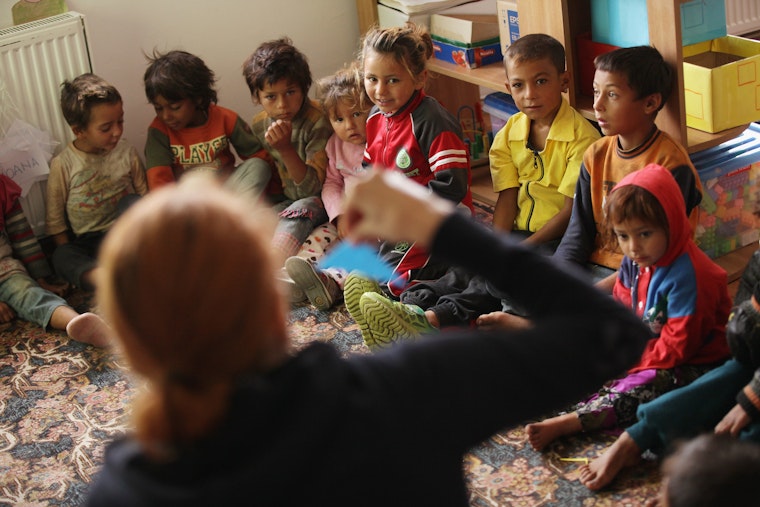The Importance of Getting Roma Children into School Early
By Iliana Sarafian & Arthur Ivatts

Early childhood education is not an extravagance, it is essential—especially in the case of Roma children, as a new report coauthored by the Open Society Foundations makes clear.
In recent years, an array of evidence has demonstrated the economic and social importance of investment in early childhood development. A European Union–funded survey of Roma confirmed the strong influence of preschool education on pupils’ competencies. In every aspect monitored, differences were displayed between Roma children who attend kindergarten and Roma children who do not.
But the investment in early childhood education pays dividends that go far beyond the school walls. Indeed, there is a growing recognition that promoting and developing early education could be a critical component in addressing inequity and participation in Roma communities.
A good place to test this theory is the Czech Republic, a country that suffers from an exceptionally high level of early years educational inequality. This week, the Open Society Foundations, the Roma Education Fund, and UNICEF released Roma Early Childhood Inclusion, a report on Roma inclusion in early childhood education and care in the Czech Republic. The report found that, while starting compulsory schooling can be a challenge for families, the evidence confirms that these critical first steps are vital for Roma parents and their children.
This year, the Czech Public Defender of Rights cited “the lack of preschool education” as one of the main reasons Roma children fail to do well in elementary school. This lack of preschool education springs in part from a rigidly differentiated education system in which certain children—particularly Roma and children with disabilities—are structurally excluded from mainstream education.
Structural exclusion is prevalent, usually in the form of separate schools or differentiated classes attached to mainstream schools. Studies on the educational pathways of Roma pupils reveal that Roma children are 10 times more likely than majority children to be diverted to schools or classes outside mainstream education.
More action should be taken by the government to monitor and enforce respect for equal treatment legislation, which could help address these divisions. The view that many Roma children are better off in separate schools remains widespread among teachers and other education professionals, who frequently subscribe to the stereotypical view that Roma pupils and their parents lack discipline and don’t value education.
Another challenge is the Czech Republic’s inadequate supply of early-years education and care provision. Compared to the EU member states’ average, fewer resources are allocated to services in support of family and child well-being in the Czech Republic, which exhibits one of the lowest participation rates in care for children under three among EU countries, a situation that has not changed in the last decade. For the majority of Czech Roma families, already often geographically isolated and trapped in precarious living conditions, this limits the opportunity to access early-years education even further.
Moreover, the Czech Republic has no systematic monitoring of participation rates of children from disadvantaged backgrounds in early years education. This makes it difficult to accurately evaluate the effectiveness of policy, provision, and practice initiatives aimed at securing improvements in equal access, regular attendance, and satisfactory attainment of Czech Roma children.
For all these reasons, the Roma Early Childhood Inclusion report recommends a professional consensus on the understanding of “inclusive education” for all children in the Czech Republic, and education that is compatible with international best practices. The report urges the government to commit towards a national early childhood strategy, a higher participation of Roma educators, and appropriate involvement of all regional and national authorities in this process.
The early years of a child represent an enormous opportunity to address inequality and improve outcomes later in life. This makes early-years education and care vitally important for the thousands of young Czech Roma children who deserve a better chance.
Until January 2020, Iliana Sarafian was a senior program officer for the Open Society Early Childhood Program.
Arthur Ivatts, formerly Her Majesty’s Education Inspector for Gypsy, Roma, Traveller children in the UK, works with the Open Society Early Childhood Program.


